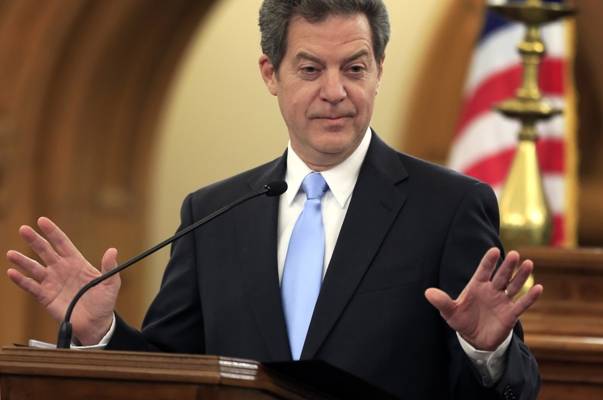Kansas became the 21st state to pass an anti-BDS law, marking the latest victory in the fight against boycotting Israel on the US state level.
Kansas became the latest state to adopt a law barring the state from doing business with entities that boycott Israel when Governor Sam Brownback signed the bill into law on Friday.
The bill, HB 2409, passed the Kansas senate last Wednesday by a 39-to-3 vote. A few hours later it passed the state’s House 99-13.
According to the bill, the state and its agencies may not “enter into a contract with an individual or company to acquire or dispose of services, supplies, information technology or construction, unless such individual or company submits a written certification that such individual or company is not currently engaged in a boycott of Israel.”
The bill also states that the problem with such boycotts is that they are imposed “on the basis of such person’s location in such places.”
Similar anti-BDS bills have become law in Montana, Arizona, Colorado, Florida, Georgia, Illinois, Ohio, Indiana, Iowa, South Carolina, Pennsylvania, New Jersey, Rhode Island Michigan, Texas and Nevada.
New York Gov. Andrew Cuomo recently signed an executive order banning state agencies from investing in companies that support boycotts on Israel.
Advocates of these measures have emphasized that they do not raise any First Amendment issues, as private parties are still free to protest, boycott, or speak out against Israel in any way. However, states may be obligated to protect taxpayer money from being used to promote or support discrimination based on religion, race, or nationality.
The passage of anti-BDS legislation reflects an understanding that the campaign “is not like the civil rights protests, as its supporters love to claim, but rather more like the anti-Jewish boycotts so common in Europe in the 20th century, and in the Arab world until this day,” Northwestern University law professor Eugene Kontorovich wrote in The Washington Post in 2015.
The BDS movement promotes financial, academic and cultural boycotts against Israel, ostensibly as a nonviolent struggle against the so-called “Israeli occupation.” Critics say its activities are a modern form of anti-Semitism and that its true objective is to destroy the State of Israel.
By: The Tower and United with Israel Staff
